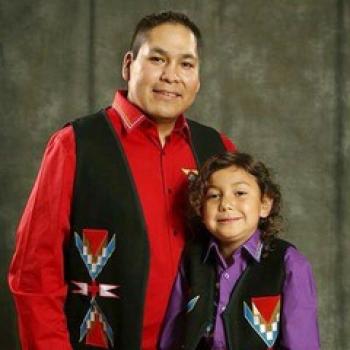Image Caption
By Shari Narine
Windspeaker Contributor
PAUL FIRST NATION, Alta.
Money received through the province’s Coal Community Transition Fund will jumpstart the work that needs to be undertaken by the next Paul First Nation council.
Because by then, says Councillor Aaron Bird, the First Nation will no longer be receiving $1.8 million annually from TransAlta Utilities through road and line permits and an impacts benefit agreement.
Those dollars will be lost after three years and it’s a substantial blow as that money goes into a community trust fund, which is accessed monthly to deliver services and programs on the First Nation.
“We’re trying to lay a solid foundation for the next leadership to build on because they’re going to be tasked within their four-year term with that revenue loss,” said Bird, who, along with Councillor Isaac Rain, maintains the industry portfolio.
The move toward economic diversification for sustainability ties into the First Nation’s switch from two-year terms of chief and council to four-year terms. The Paul First Nation has opted into the First Nations Election Act, which should come into force at this November’s election.
“I think that with that four-year term, the next leadership will have the time to plan projects, carry out economic development plans,” said Bird, who will be running again.
Last week, the band was the only First Nation in Alberta to receive money through the transition fund. Bird said the Paul Nation qualified because it is adjacent to coal plants, with Sundance and Keephills plants operated by TransAlta.
The province meted out just under $5 million to 12 different recipients in 17 communities. The $250,000 received by Paul Nation was half of what had been requested.
About $25,000 will go toward delivering a community proposal writing workshop. Bird said industry in the Nation’s traditional territory often offers community funding and the workshop will teach program managers and companies how to write successful proposals to access those dollars.
Funds will also be used to develop a business plan to build and operate an employment and training centre. The money from the government—$65,000—will be matched by TransAlta as part of the mutual benefits agreement the company has with the First Nation. At this points, said Bird, it is still unclear as to how many Paul members will be losing direct jobs.
The remaining money, $160,000, will go toward purchasing specialty outdoor equipment and the upgrade of financial equipment for the Ironhead Golf Course. There is a long-term plan for the 18-hole course, which includes irrigation, with a price tag of $2.53 million.
Bird said Paul Nation is also looking to generate revenue by pursuing renewable energy options, including applying for the second round of funding from the province’s Renewable Energy Program. While all options are being kept open, he said they are leaning toward wind energy.
However, due to the timeframe for Alberta Electric System Operator, requirements don’t allow First Nations the time to build on their own land, so Bird said they will be pursing projects already in the development stage, offering their equity to cover 15 per cent to 25 per cent of ownership.
Bird said Paul Nation is interested in sharing that equity with other First Nations, or better yet, having four or five First Nations combine their equity to bankroll a single project.
“We’re supposed to be working together in projects, we’re supposed to be working together as First Nations people, that’s why we’re reaching out to other nations to see if they’re interested,” he said.

